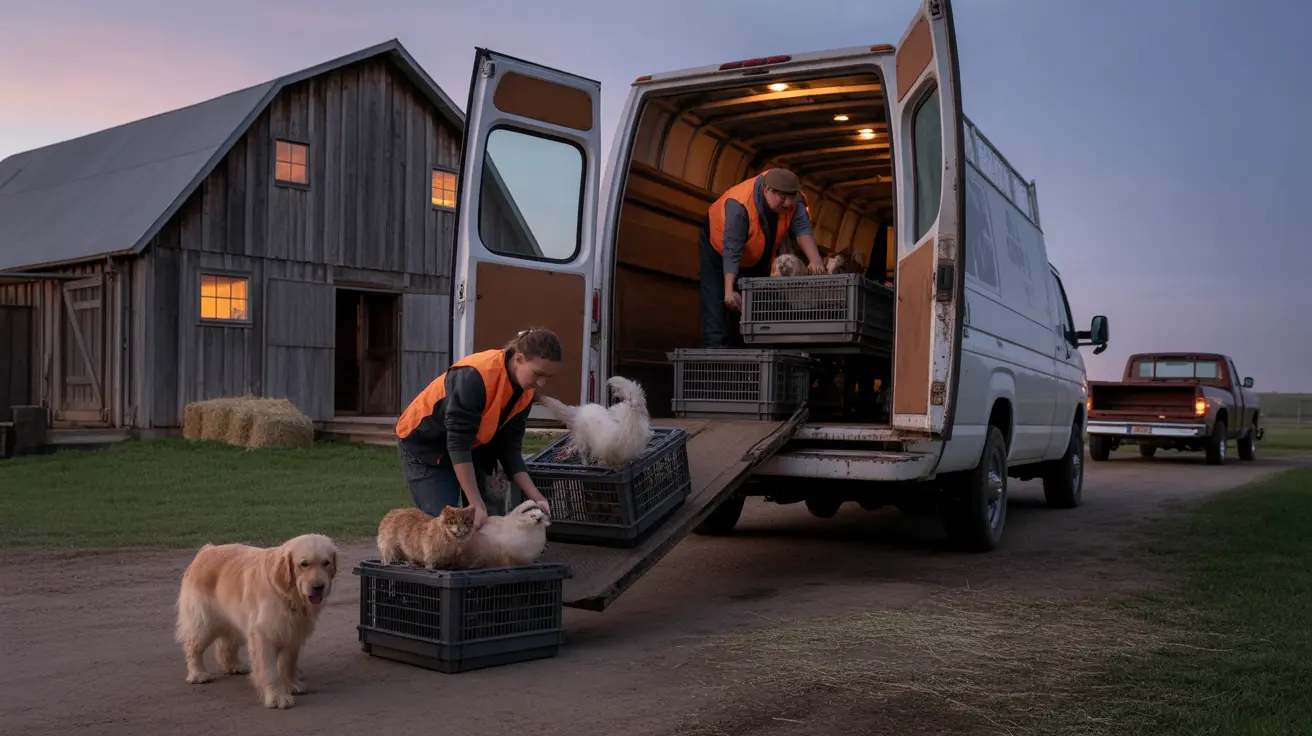A significant animal neglect case in Plymouth, Wisconsin has resulted in the rescue of approximately 400 animals and the arrest of two individuals. The large-scale rescue operation, coordinated by the Juneau County Sheriff's Office, highlights ongoing concerns about animal welfare in the state and the challenges faced by local shelters.
The incident represents one of the largest animal rescue operations in recent Wisconsin history, drawing attention to the critical need for vigilance in identifying and reporting suspected cases of animal neglect. Local authorities responded to the Plymouth property after receiving reports of concerning conditions.
Details of the Wisconsin Animal Rescue Operation
The rescue effort involved multiple agencies working together to safely remove the animals from the property. While specific details about the animals' conditions are limited, the case underscores the importance of proper animal care and the serious consequences of neglect.
Signs of Animal Neglect That Prompted Action
Law enforcement and animal welfare professionals identified several concerning conditions at the property that warranted immediate intervention. The scale of the rescue operation suggests systematic issues with animal care at the location.
Impact on Local Animal Shelters
The sudden influx of rescued animals has placed significant strain on local sheltering facilities. Wisconsin animal shelters, already dealing with capacity challenges, must now coordinate care for hundreds of additional animals requiring various levels of attention.
Managing Pet Surrenders and Shelter Resources
This incident comes at a time when Wisconsin shelters are experiencing increased pressure due to:
- Rising numbers of pet surrenders
- Limited space and resources
- Growing demand for specialized care services
- Need for additional foster homes
Prevention and Reporting of Animal Cruelty
The Plymouth case serves as a reminder of the importance of community vigilance in preventing animal cruelty. Wisconsin residents are encouraged to familiarize themselves with signs of animal neglect and understand proper reporting procedures.
How to Report Animal Neglect in Wisconsin
If you suspect animal neglect or cruelty:
- Contact local law enforcement
- Reach out to your county's animal control office
- Document any observable evidence
- Maintain detailed records of your reports
Supporting Animal Welfare Organizations
The rescue has highlighted the crucial role of animal welfare organizations in responding to crisis situations. These organizations rely on community support through donations, volunteering, and foster care participation to maintain their life-saving work.
Frequently Asked Questions
What signs of animal neglect led to the rescue of nearly 400 animals in Plymouth, Wisconsin?
Authorities found evidence of severe neglect including lack of food, water, shelter, veterinary care, and unsanitary conditions, prompting coordinated rescue efforts.
What legal consequences do people in Wisconsin face for animal neglect or cruelty?
Under Wisconsin law, animal neglect can be charged as a Class A misdemeanor, with aggravated cases classified as Class I felonies, which may involve fines, imprisonment, and bans on owning animals.
How do Wisconsin shelters manage the increased number of animals needing extra medical or behavioral care?
Shelters rely on community support, foster networks, donations, and specialized veterinary and behavioral services to manage animals requiring additional care, helping to avoid euthanasia due to space or time limits.
Moving Forward
This large-scale rescue operation serves as a catalyst for ongoing discussions about animal welfare in Wisconsin. While the immediate focus remains on caring for the rescued animals, the incident also emphasizes the need for stronger preventive measures and community engagement in animal welfare issues.
The case highlights the importance of supporting local animal welfare organizations and staying informed about proper animal care standards. Community members are encouraged to learn more about how they can contribute to preventing similar situations through volunteering, fostering, or supporting their local animal welfare organizations.






